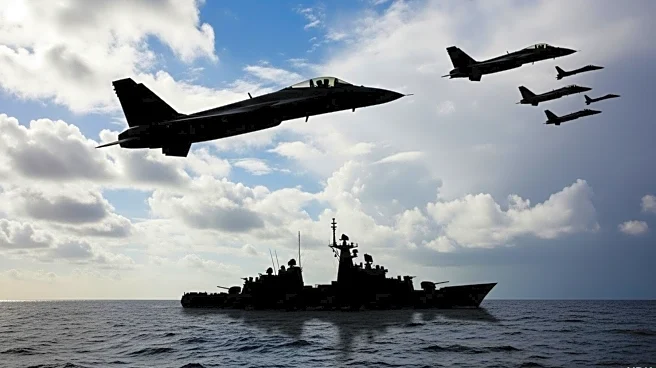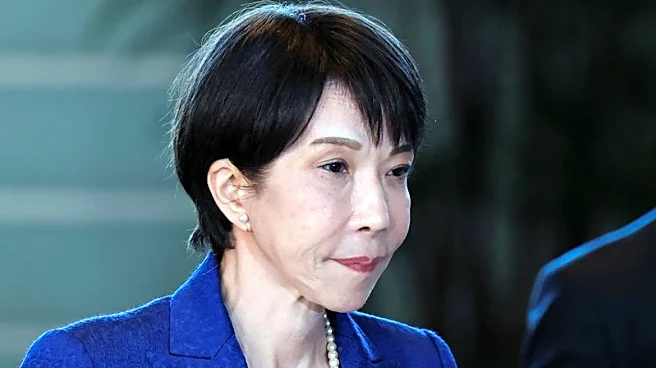What's Happening?
According to a report by the Royal United Services Institute (RUSI), Russia is providing military equipment and technology to China that could aid in preparing for an airborne invasion of Taiwan. The analysis is based on leaked Russian documents, which include contracts and equipment lists supplied by Moscow to Beijing. The documents suggest that Russia has begun work on high-altitude parachute systems and amphibious assault vehicles, although there is no direct evidence of payment or equipment receipt by China. The report indicates that this equipment could be used to invade Taiwan, aligning with China's military modernization goals under President Xi Jinping.
Why It's Important?
The collaboration between Russia and China in military preparations has significant geopolitical implications, particularly concerning U.S. interests in the Asia-Pacific region. The potential for China to enhance its airborne capabilities with Russian assistance could accelerate its timeline for a possible invasion of Taiwan, a scenario that could destabilize regional security and provoke international responses. This development may impact U.S. foreign policy and defense strategies, as well as the balance of power in the region, with potential consequences for global trade and diplomatic relations.
What's Next?
The U.S. and its allies may need to reassess their defense postures and diplomatic strategies in response to the growing military cooperation between Russia and China. There could be increased military presence and strategic alliances formed in the Asia-Pacific region to counterbalance this development. Additionally, diplomatic efforts may be intensified to prevent escalation and maintain regional stability.
Beyond the Headlines
The military collaboration between Russia and China raises ethical and legal questions regarding international arms agreements and the potential for conflict escalation. The long-term implications could include shifts in global power dynamics and the emergence of new military alliances. The situation also highlights the importance of intelligence and surveillance in modern warfare, as countries seek to gain strategic advantages through technological advancements.










